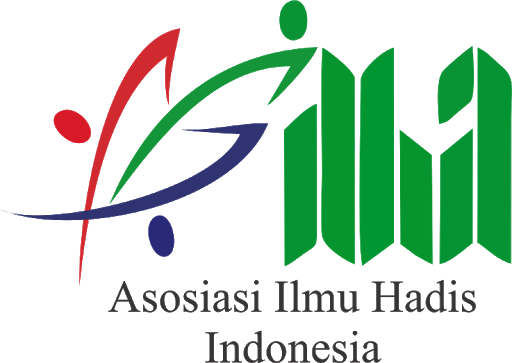Hadith of Women Leadership in the Qira'ah Mubadalah Approach
DOI:
https://doi.org/10.14421/livinghadis.2021.2900Keywords:
Hadith, Textual, Contextual, Women's Leadership, Qira'ah MubadalahAbstract
Hadith become the source of both law in Islam, where textual and contextual application is used. Some hadith needed editors of the qur’an texts to get an understanding of the hadiths being studied. In this study, we adopted one hadiths which is still a public debate. The focus of this research is that of women’s leadership gifts to be studied by Mubadalah methods the one that was championed by Faqihuddin Abdul Qadir. Footsteps his research was to throne the hadith and to explain the terms and then apply traditional thought Mubadalah as a step to gaining an understanding of the hadith which did not affect women’s subornation anymore. Further explaining the roles that women have performed in public space the study concludes that basic Islamic principle used in the hadith is surah An-Nisa verse 59 and the surah at-taubah verse 71. In both the verse explained the reprisals for those who had faith and obedience to their leaders. Then the main idea when discovered applies the mubadalah method is either the lack of luck or luck a victory for nation. And the final step is to enter the subject which is there is no mention (men). Men could’ve done damage if he’d been a leader. The understanding given by the mubadalah method is how to make a hadith impression at all parties, not only one participant and costs other by using the passage of the qur’an as understanding.
References
Abror, I. (2017). Metode Pemahaman Hadis. Yogyakarta: Ilmu Hadis Press.
Al-Asqalani, I. H. (2009). Fathul Bari (Vol. 35). Jakarta: Pustaka Azzam.
Al-Bukhori, I. A. A. M. bin I. (2002). Shahih al-Bukhori. Beirut: Darul Ibnu Katsir.
Bisri, KH. A., KH. Munawwir A. Fatah. (1999). Kamus Al-Bisri. Indonesia: Penerbit Pustaka Progressif.
Danarta, A. (2013). Perempuan Periwayat Hadis. Yogyakarta: Pustaka Pelajar Offset.
Istibsyaroh. (2004). Hak-Hak Perempuan. Jakarta: PT Teraju Mizan.
Faizal, L. (2016). Perempuan Dalam Politik (Kepemimpinan Perempuan Perspektif al-Qur’an). Jurnal TAPI’s, 12 (1).
Fatmawati. (n.d.). Kepemimpinan Perempuan Perspektif Hadis. Jurnal Al-Maiyyah, 8 (2).
Hakim, L. (2020). Corak Feminisme Post-Modernis dalam Penafsiran
Faqihuddin Abdul Qadir. Jurnal Studi Ilmu-Ilmu al-Qur’an Dan Hadis, 21 (1).
Http://www.meriam-webster.com/dictionary/reciprocal. (n.d.).
Hudaya, H. (2011). Kajian Kepemimpinan Perempuan Dalam Keluarga Perspektif Tafsir. Musawa, 10 (2).
Ilyas dkk, H. (2003). Perempuan Tertindas? Kajian Hadis-Hadis “Misoginis.” Yogyakarta: Pusat Studi Wanita (PSW) IAIN Sunan Kalijaga.
Ismail, Z. (2016). Perempuan dan Politik Pada Masa Awal Islam (Studi Tentang Peran Sosial dan Politik Perempuan Pada Masa Rasulullah). Review Politik, 06 (01).
Madrosi. (2019). Kesetaraan Gender Dalam Hak Cerai Menurut Hukum Keluarga Islam. Banten: UIN Sultan Maulana Hasanuddin.
Nadia, Z. (2020). Peran dan Aktivitas Perempuan Era Muhammad SAW (Studi Atas Hadis-Hadis Riwayat Perempuan). HUMANISMA : Journal of Gender Studies, 04 (01).
Najwah, N. (2008). Ilmu Ma’anil Hadis Metode Pemahaman Hadis Nabi: Teori dan Aplikasi. Yogyakarta: Cahaya Pustaka.
Nikmah, S. (2019). Revitalisasi Pemahaman Hadis di Indonesia (Kajian Terhadap Hadis-Hadis Relasional Perspektif Hermeneutika Resiprokal). Surabaya: UIN Sunan Ampel.
Nugraha, S. dan A. S. (2019). Prinsip Kepemimpinan Dalam Perspektif Q.S. An-Nisa 58-59. Jurnal Madaniyah, 9 (1).
Nur Hadi, M. (2020). Mubadalah Perspective: A Progressive Reading on Book Of Dhau’ Al-Misbah Fi Bayani Ahkam An-Nikah. Islam Universalia - Internasional Journal of Islamic Studies and Social Sciences, 1 (3).
Qadir, F. A. (n.d.). Qira’ah Mubadalah (Tafsir Progresif Untuk Keadilan Gender dalam Islam). IRCiSoD.
Qadir, F. A. (2016). Mafhum Mubadalah: Ikhtiar Memahami Qur’an dan Hadis untuk Meneguhkan Keadilan Resiprokal Islam dalam Isu-Isu Gender. Islam-Indonesia, 6 (02).
Qadir, F. A. (n.d). Qira’ah Mubadalah (Tafsir Progresif Untuk Keadilan Gender Dalam Islam). IRCiSoD.
Santoso, L. B. (2019). Eksistensi Peran Perempuan Sebagai Kepala Keluarga (Telaah Terhadap Counter Legal Draft-Kompilasi Hukum Islam dan Qira’ah Mubadalah ). Marwah : Jurnal Perempuan, Agama Dan Gender, 18 (02).
Sastrawati, N. (2013). Laki-Laki dan Perempuan Identitas Yang Berbeda: Analisis Gender dan Politik Perspektif Post-Feminisme. Makassar: Alauddin Press.
Tangngareng, T. (2015). Kepemimpinan Perempuan Dalam Perspektif Hadis. KARSA, 21 (1).
Winsick, A. W. (1936). Mu’jam al-Mufahras li al-fadz al-hadist nabawi (Juz. 5). Maktabah Bril fi Madinah Leiden.
Zakaria, S. (2013). Kepemimpinan Perempuan Dalam Perspektif Hukum Islam (Studi Komparatif antara Pemikiran KH. Husein Muhammad dan Prof. Siti Musdah Mulia). KHAZANAH, 6 (1).
CD. Maktabah Syamilah, Versi 3.47
Downloads
Published
Issue
Section
License
- Authors who publish with this journal agree to the following terms:
- Authors retain copyright and grant the journal right of first publication with the work simultaneously licensed under a Creative Commons Attribution License that allows others to share the work with an acknowledgement of the work's authorship and initial publication in this journal.
- Authors are able to enter into separate, additional contractual arrangements for the non-exclusive distribution of the journal's published version of the work (e.g., post it to an institutional repository or publish it in a book), with an acknowledgement of its initial publication in this journal.
- Authors are permitted and encouraged to post their work online (e.g., in institutional repositories or on their website) prior to and during the submission process, as it can lead to productive exchanges, as well as earlier and greater citation of published work.
















